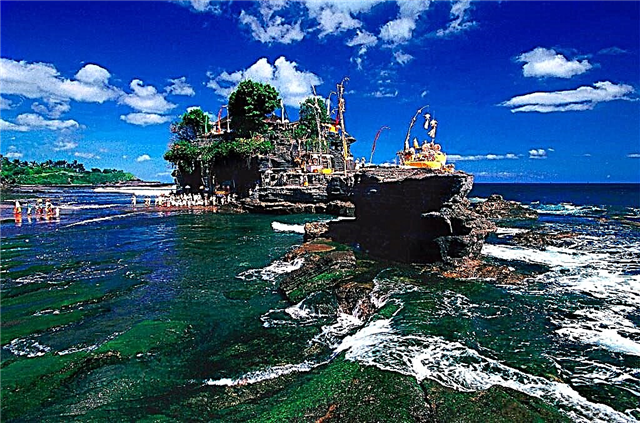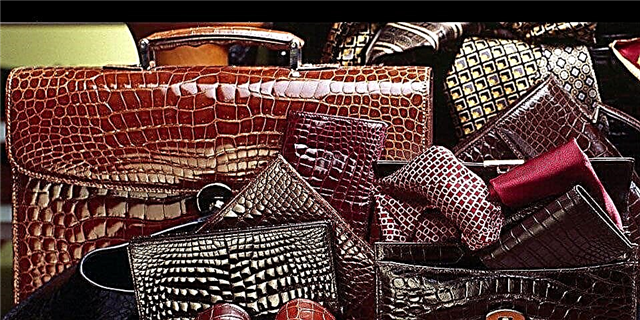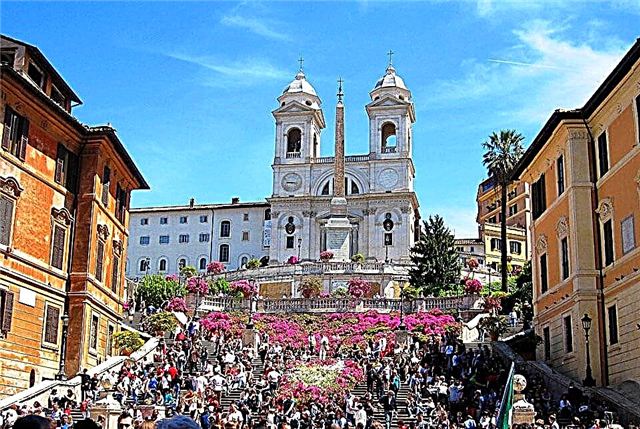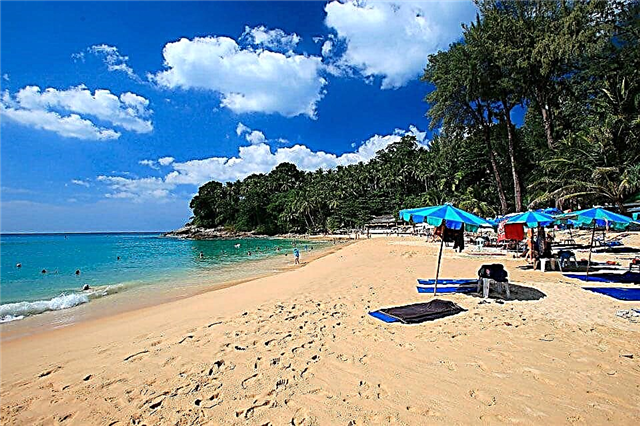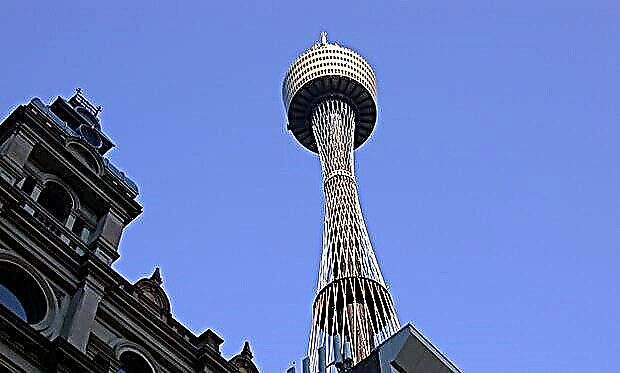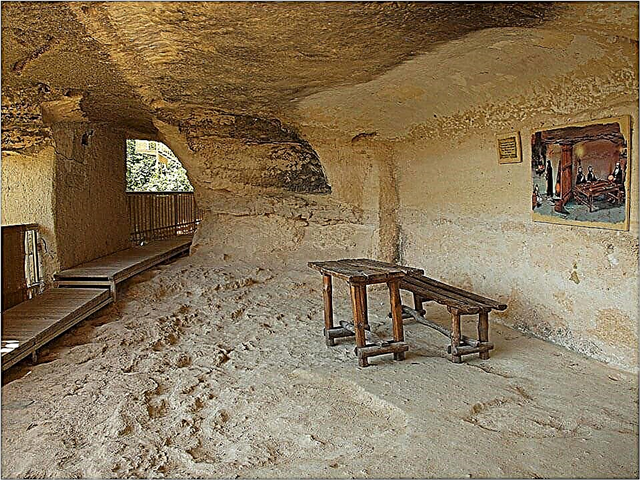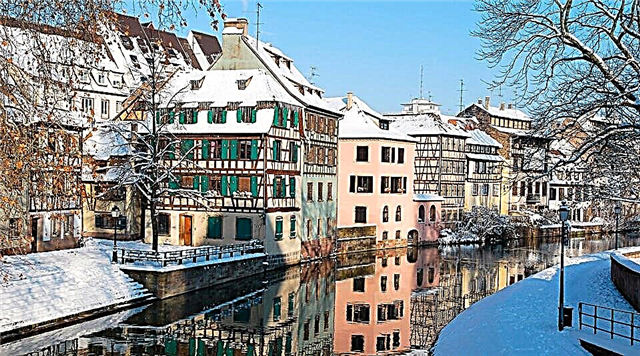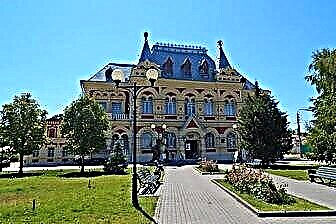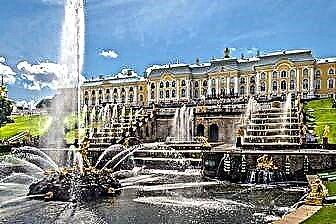St. Petersburg has always been the main tourist center of Russia. Dozens of museums with the most valuable collections, palace and park ensembles of the heyday of classical architectural styles and the unique atmosphere of a secular ball await the guests of the city.
The glorious imperial past is reflected in the facades of the magnificent Winter Palace and the ornate spans of the aristocratic mansions of Nevsky Prospect. Graceful embankments of the city are clad in granite, and the incomparable drawbridges over the Neva are a real architectural delight for numerous tourists.
The history of the country was created in St. Petersburg: the great achievements of Peter I, the brilliant victories of the Russian Empire and the first steps of the young Soviet Union. The northern capital of Russia is a harmonious synthesis of a glorified past and a dynamic future, the heart of the country and its eternal pride.

The best hotels and hotels at affordable prices.
from 500 rubles / day
What to see and where to go in St. Petersburg?
The most interesting and beautiful places for walking. Photos and a short description.
Peterhof
Former imperial country residence, which was founded by Peter the Great at the beginning of the 18th century. This grandiose palace and park ensemble is called the "Russian Versailles". Over the three centuries of its existence, the appearance of Peterhof has changed quite a lot, and after the War of 1941-1945. it was literally rebuilt from the rubble. On the territory of the complex there are dozens of fountains, flower beds, walking alleys and pavilions that remind of the imperial era of Russian history.

Great Catherine Palace
The palace complex is located in the outskirts of St. Petersburg in the town of Pushkin. Until the beginning of the 20th century, it was called the Great Tsarskoye Selo Palace. The first royal house appeared here in the first half of the 18th century. Expansion began in the 1750s. during the reign of Elizabeth under the direction of the architect Rastrelli. The palace was erected in the classical Baroque style; elements of rococo prevail in the lush interior interiors.

State Hermitage
The largest museum in Russia, which, along with the Spanish Prado, the Parisian Louvre and the Vatican museums, is included in the list of the most outstanding and valuable art collections in the world. The Hermitage's expositions occupy 6 buildings; about 3 million exhibits are kept here. The real pride of the museum is the building of the Winter Palace, where the residence of the royal family was located. This magnificent complex was built by Bartolomeo Rastrelli in the Elizabethan Baroque style.

Palace Square
The main square of St. Petersburg is located in front of the Winter Palace. Its dimensions are almost twice the size of the capital's Red Square. The architectural ensemble with ideal geometric proportions was built in the 18th-19th centuries. In the middle of the square is the monumental Column of Alexandria, which is dedicated to the victory of the Russian Empire over Napoleon's army. The column was erected by order of Nicholas I.

Museum-reserve Pavlovsk
The palace and park ensemble, located on the territory of 600 hectares. Previously, these lands were the royal hunting grounds. In 1777, the land was transferred into the possession of Crown Prince Paul I, who planned to build a grandiose residence here for himself. In four years they built a palace and laid out a park. After the death of Paul I, his widow lived in the residence, who invested a lot of effort and money in expanding and decorating the complex.

Oranienbaum
A palace and park complex on the shores of the Gulf of Finland. Located 40 km from St. Petersburg. Most of the buildings and structures date from the beginning of the 18th century. The architect of the complex is Johann Schedel. The imperial dacha with preserved interior decoration is of particular value. On the territory there are sculptures, an artificial waterfall, bridges. The attraction is part of a UNESCO World Heritage Site.

Main Admiralty building
A structure on the banks of the Neva, which is located on the site of the first shipyard on the Baltic Sea. The building was built in the architectural style of the Russian Empire. The figure of the ship crowning the spire of the Admiralty is one of the symbols of the Northern capital. Under Peter I, there was a real fortress here that protected the shipyard during the Northern War. Since 2012, the headquarters of the command of the Russian Navy has been located in the Admiralty.

Alexandrinsky theater
The first Russian drama theater for public visits, founded in the middle of the 18th century by order of Elizaveta Petrovna. A few decades after the appearance of the first building, the reconstruction was carried out under the direction of the architect K. Rossi. The most prominent Russian directors worked at the theater at different times: V. Meyerhold, G. Tovstonogov, G. Kozintsev, N. Akimov.

Mariinsky Theatre
The main St. Petersburg opera stage, one of the iconic cultural places of the city. The theater appeared in the middle of the 19th century by decree of Alexander II, who wished to name it in honor of his wife Maria Alexandrovna. Master Alberto Cavos worked on the project. The performances of the Mariinsky are very popular with foreign tourists, many of them come here with pleasure to listen to a real Russian opera.

Kunstkamera
The museum, created by order of Peter I, where samples of mutations, deformities, genetic disorders, pathologies and man-made "ugliness" of nature and the human body were collected for more than 300 years. In the first years of the museum's existence, real dwarfs, giants and other people with "abnormalities" lived here. All three centuries of its existence, the interest in the collection has always been very high. To date, more than one million copies have been collected.

State Russian Museum
The world's largest museum of Russian fine arts. Opened at the end of the 19th century. during the reign of Nicholas II. The collection was made up of the transferred exhibits from the Hermitage, the Alexander Palace, the Academy of Arts, as well as from the private collections of some Russian aristocrats. The main exposition is located on the territory of the Mikhailovsky Palace. In the museum you can see the canvases of Bryullov, Repin, Aivazovsky and other masters.

Erarta Museum
The first private museum of contemporary art in St. Petersburg, has been welcoming visitors since 2010. The name is derived from the phrase "era of art", that is, "era of art". Among the 3 thousand exhibits, there was a place for painting, sculpture, video art and installations. The collection draws on the work of local authors, but is not limited to them. More than 30 exhibitions are held annually in Erarta.

House of Peter I
The first residential building in St. Petersburg at the beginning of the 18th century, where the emperor lived during the construction of the city. At the moment, the wooden structure has been moved to another place and covered with a stone "case" for better preservation (the first frame appeared at the end of the 18th century). According to legend, the house was erected in just three days by the hands of skilled carpenters. A museum has been operating on the territory since 1930, where you can see the personal belongings of the king.

Peter-Pavel's Fortress
The defensive structure and the historical center of St. Petersburg at the beginning of the 18th century, from which the construction of the city began. The fortress was never used for its intended purpose (it served as a prison). The architectural ensemble consists of fortress walls, bastions, front gates and administrative buildings. For a long time, the Peter and Paul Cathedral on the territory of the fort was the main temple of the capital. It was built in the style of the classic "Russian baroque".

Mikhailovsky castle
Built by order of Paul I in the center of St. Petersburg at the turn of the 18th-19th centuries.The emperor wanted to find a new home, fearing palace coups. Ironically, it was in the new castle that he was killed. Subsequently, the territory was transferred to the management of the Russian Museum. The castle is open to tourists with tickets or excursions on an ongoing basis. In the courtyard there are monuments to Peter I and Paul I.

Saint Isaac's Cathedral
The majestic cathedral, the decoration of the city and the largest Orthodox church in St. Petersburg. The construction was carried out under the personal supervision of Nicholas I according to the project of O. Montferrand. The building of the cathedral is an example of late classics with harmonious touches of neo-Renaissance and Byzantine style. The temple was named in honor of the patron saint of Peter the Great, the Monk Isaac of Dalmatia.

Church of the Savior on Spilled Blood
The temple erected by Alexander III on the site of the assassination of the reformer Tsar Alexander II. The height of the building is 81 meters, which corresponds to the date of the tragic event - 1881. The cathedral was ready by 1907. Regular services were not held here, only services were held in memory of Alexander II. During the years of Soviet power, the temple was used as a morgue and warehouse. After renovation in 1997, a museum was opened in the building.

Kazan Cathedral
The main Orthodox church in St. Petersburg, where the icon of the Kazan Mother of God is kept. The cathedral was built by the architect A. Voronikhin in the Empire style. The laying of the first stone took place in the presence of Alexander I. The interior interiors are decorated with monumental colonnades and are more reminiscent of a palace than a church. The icons for the temple were painted by famous masters O. Kiprensky, A. Ivanov and others.

Nikolsky Naval Cathedral
The temple was built on the site of the regimental maritime court in the middle of the 18th century. The revered Christian shrine is kept in the cathedral - the icon of St. Nicholas the Wonderworker with part of the holy relics. Since the end of the 19th century, a charitable society worked at the temple, which organized a shelter for elderly women, a school and a hospital. The St. Nicholas Naval Cathedral regularly hosts memorial services in honor of the dead sailors.

Smolny monastery
An architectural complex built according to the project of B. Rastrelli (commissioned by Empress Elizabeth). Another name for the monastery is the Resurrection Novodevichy Convent. Smolny Monastery was built for 87 years, the work was constantly interrupted by wars and lack of sufficient funding. The main cathedral was never opened for worship. All the interior furnishings of the monastery were removed during the USSR period. A concert hall has been operating here since 1990.

Alexander Nevsky Lavra
The monastery was founded by decree of Peter the Great, who wanted to perpetuate the victory of Alexander Nevsky over the Teutonic knights in 1240. After the consecration of the Trinity Cathedral of the Lavra, the relics of Alexander Nevsky were brought here. A printing house, a seminary, an orphanage and a hospital worked at the monastery. By the end of the 18th century, the monastery had become an important spiritual and cultural center of the Russian Empire and received the status of a lavra.

Bronze Horseman
Monument dedicated to the founder of the city Peter the Great, located on Senate Square. The Bronze Horseman appeared at the request of Empress Catherine II. She decided to immortalize the image of Peter in a majestic figure with a scepter, dressed in the clothes of the Roman emperor, but the sculptor Falcone thought otherwise. He represented Peter as a creator, a benefactor of Russia. The result was a monument where Peter patronizingly "stretches out his right hand" over the country.

Nevsky Prospect
The most famous and picturesque street in the Northern capital, the main facade of the city. It stretches for 4.5 km. to the Alexander Nevsky Lavra. The avenue was designed as the main entrance to the city from the Moscow side. There are many architectural monuments here. Nevsky Prospekt is a popular place with a special atmosphere, which is perfect for walking, meeting, shopping. The very "spirit of St. Petersburg" dwells here.

House of the company "Singer"
The building is a striking example of St. Petersburg Art Nouveau. It houses a bookstore. All city literature lovers gather here. At the beginning of the 20th century, the site belonged to the American company Singer, which planned to erect a high-rise building and place an office in it. Of the planned eleven floors, only seven were built, but all the same, the structure stood out against the background of the surrounding landscape.

Eliseevsky store
The building is located at the intersection of Nevsky Prospekt and Malaya Sadovaya Street. Construction was carried out in the early years of the last century. The architectural style is modern with eclectic elements. Gabriel Baranovsky was responsible for the project. The stained glass window on one side looks like a huge showcase with several floors. The façade is decorated with sculptures representing Science, Art, Trade and Industry. Since 2012, after restoration work, the store has been reopened to customers.

New! Lakhta Center
Public and business complex in the Primorsky district of the city. Built from 2012 to 2019. Its main objects are a skyscraper, which has become the largest in Europe, and a multifunctional building, divided into two blocks by an atrium. The height of the landmark together with the spire is 462 meters. The Lakhta Center is the headquarters of Gazprom. For the convenience of the townspeople, it is planned to build new highways and metro lines here.

Neva River
The main waterway of St. Petersburg, one of the largest rivers in the North-West of Russia. According to one of the curious versions, the name comes from the Finnish word, which means "deep swamp". The city embankments of the Neva are an independent attraction of St. Petersburg. From here you can watch the night bridge building or just walk and enjoy the panorama of the city.

Spit of Vasilyevsky Island
The place where Vasilievsky Island divides the river. The Neva is in two parts and seems to crash into the body of water. There are many buildings from different eras and architectural styles, which makes this place a real open-air museum. The Rostral columns of red-brown color, decorated with naval bows, attract special attention. The structures served as lighthouses for ships until the end of the 19th century.

Palace bridge
A drawbridge over the Neva River, a symbol of St. Petersburg. The structure connects Vasilievsky Island with the central part of the city. The bridge started working in 1916, but its famous curly lattices did not appear until twenty years later. The bridge was reconstructed in 1967, 1977 and 1997. Until 1998, a tram line ran here. The weight of the cast iron structure is 700 tons. Some of the elements of the bridge's drawbridge are over a hundred years old.

Bank Bridge
It was thrown across the Griboyedov Canal and connects the Spassky and Kazansky islands. The pedestrian bridge is just over 20 meters long and 1.85 meters wide. Opened in 1826, it was reconstructed twice in its history. One of the city's three chain pedestrian bridges. The name "Bankovskiy" was received by the bridge, since the Assignation Bank was located nearby. At both ends there are sculptures of winged lions.

Kronstadt
The city is located on an island in the Gulf of Finland. For 300 years of existence, 17 sea forts were built here, surrounding the island from all sides and serving to protect the port. Today Kronstadt is used as a trading port and a base for ship repairs. The historical center is included in the UNESCO heritage list. During a boat trip along the Gulf of Finland, you can see the remains of numerous fortresses.

Cruiser Aurora"
A 1900 warship that took part in the Battle of Tsushima in the waters of the Pacific Ocean. After returning to the Baltic Sea, it was used as a training one. In October 1917, a cannon shot fired from a cruiser was the signal for the storming of the Winter Palace and the beginning of the Bolshevik coup (October Revolution of 1917). Until 1940, the ship was used for its intended purpose, and since 1948 it departed for the "eternal mooring", a museum exposition was placed inside.

Summer garden
The oldest city park of the 18th century, founded under Peter the Great. The first sculptures appeared here in 1707. During the years of the king's life it was used as his summer residence. With each successive ruler, the garden grew and eventually turned into a picturesque example of park art. Under Elizabeth, the territory was open to the public (during the absence of the Empress).

Lions, sphinxes and griffins
Numerous statues of lions, of which there are more than 1000 pieces in the city. They are created from different materials and brought from different countries. Not only statues, but also lion bas-reliefs adorn the city facades. Lions began to appear on the streets and squares from the 18th century. The animals symbolize the guards who are called upon to protect the peace and inviolability of St. Petersburg.

Roofs of St. Petersburg
One of the most interesting and popular excursions in St. Petersburg is a walk on the rooftops of the city. From there, you can see the city from a more picturesque perspective, meet the sunset or sunrise, feel the urban atmosphere more subtly. Experienced roof guides know the accessible spots from where you can get to the rooftops. During the excursion, they will tell interesting and exciting stories from the life of the city.

White Nights
A unique natural phenomenon typical of the northern regions. It lies in the fact that in the summer (June-July) the sun practically does not set, and the dark time of the day lasts only a couple of hours. White nights in St. Petersburg is the most romantic and pleasant time when life in the city does not stop for a minute. People walk along the embankments, watch bridges being raised, sit in cafes, have fun and enjoy life around the clock.


